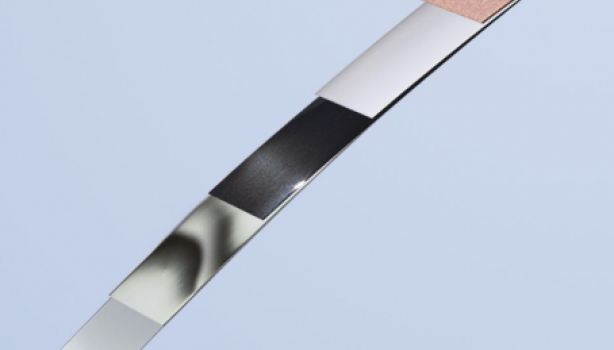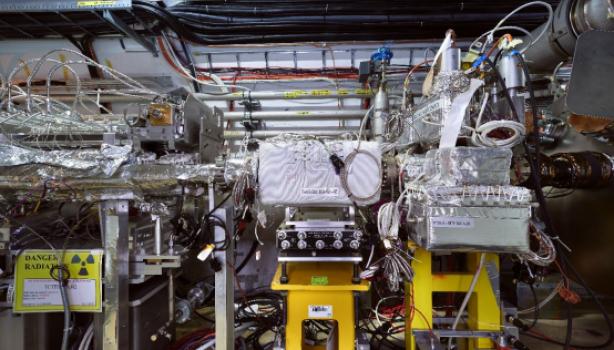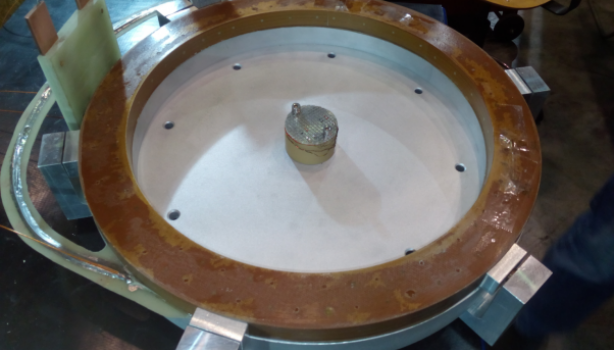ARIES Proof-of-Concept fund was open from December 2017 to April 2018 (Image: CERN)
On the 14th of December 2017, the ARIES project launched a call for proposals to its Proof-of-Concept (PoC) fund, aiming at fostering innovation and enhancing the impact of accelerator technology in society. How? By offering a total funding of €200,000 for up to four projects based on accelerator science with clear potential to go beyond the realm of scientific research with particle accelerators. This funding program is designed to bridge the gap between the seed stages of research and full commercial application, therefore reducing the financial risks associated with early-stage innovation.
The goal is clear: the accelerator community should propose ideas and early-phase projects focusing on the possible societal and commercial applications of these ideas within fields such as medicine, energy, security, and any others of relevance where accelerator technology has great potential to deliver value.
ARIES manages this fund through a dedicated Work Package, WP14 Promoting Innovation, led by Marcello Losasso from the CERN Knowledge Transfer Group. WP14 is dedicated to foster technology development in key areas, strengthen relationships with commercial partners, and provide advice to ARIES members on intellectual property (IP), management, and licensing. The PoC funding has the vocation to investigate the commercial feasibility of a new concept, as well as identifying opportunities for partnerships, licences and IP positions, in a holistic approach to innovation.
Through a competitive two-step selection process, projects were shortlisted for interview based on the quality and potential impact, as described in their proposal. All 10 projects submitted to ARIES PoC were extremely interesting, well prepared and would have deserved proper support. However, in consideration of the available budget, only the four projects that scored highest were invited to present their proposal. This presentation took place on the 15th of June, in front of a specially appointed Project Evaluation Committee (EvCo). The EvCo, chaired by the WP14 Leader, Mr Losasso, was keen to assess not only the technical aspects of the proposals, but also the potential of turning the research outputs into spill-overs with commercial impact for other sectors. Special focus was given to the possibility of involving Business Incubators to create more exploitation opportunities for the projects and to engage with already established supply chains, including industrial partners.
The four projects presented to the EvCo were evaluated as extremely interesting given their potential applications.
Riga Technical University presented a wide collaborative project involving academic partners (Universities of Warsaw and Huddersfield), scientific laboratories (Fraunhofer and CERN), a commercial company (e-Beam) and two shipyards (Gdansk and Riga) and aimed to tackle the challenge of pollution generated by marine diesel exhaust gas, using electron beam accelerators.
The RHP company from Austria presented a project in collaboration with GSI, supported by 2 industrial partners from Malta (IMA Engineering) and Austria (ASMAG), aimed at preparing innovative composite materials, containing diamonds, with tailored thermophysical properties. In this case, applications are expected in the area of power electronic, laser and collimators for future accelerators.
Another project was presented by CEA, France, supported by an industrial partner (Zanon, Italy), focusing on the development of a novel technology for producing Superconducting Radio Frequency Cavity. The method, Atomic Layer Deposition, if proved successful, could dramatically impact the construction and operational cost of large accelerator projects, such as FCC and CLIC.
The University of Liverpool, together with D-Beam Ltd., industrial partner from UK, presented an innovative project aimed to develop an advanced optical imaging system. Applications are expected not only for beam diagnostic in light sources and synchrotrons, but also for video projectors and displays.
These four projects, given their outstanding quality and application potential, have eventually been proposed for award to the ARIES Steering Committee and to the Governing Board. The award is expected very soon and, within a few weeks, the projects can start their planned activities.
“We are delighted that the PoC fund generated so much interest and that 10 very good proposals were submitted” says Maurizio Vretenar, ARIES Project Scientific Coordinator, based at CERN in Switzerland. “It showcases the maturity of the accelerators ecosystem, to look beyond particle physics and explore a larger field of applications that can benefit society at an even bigger scale. We are all very excited to see how the four projects we selected will develop and deliver the expected impact they have been designed for.”
To be continued!


